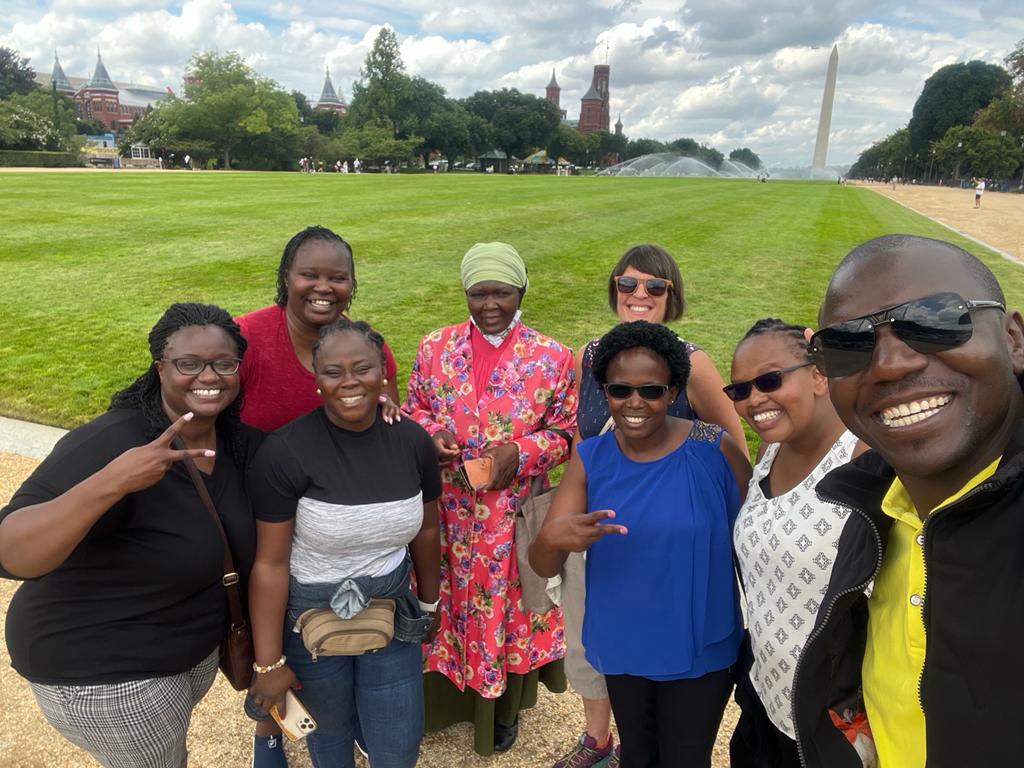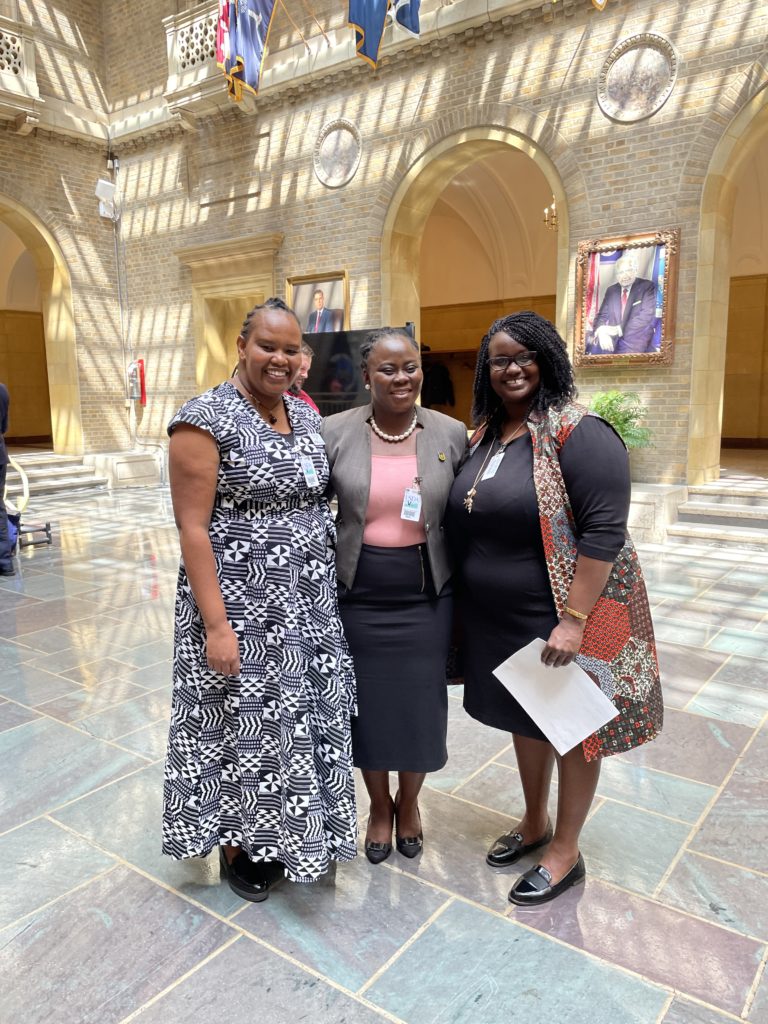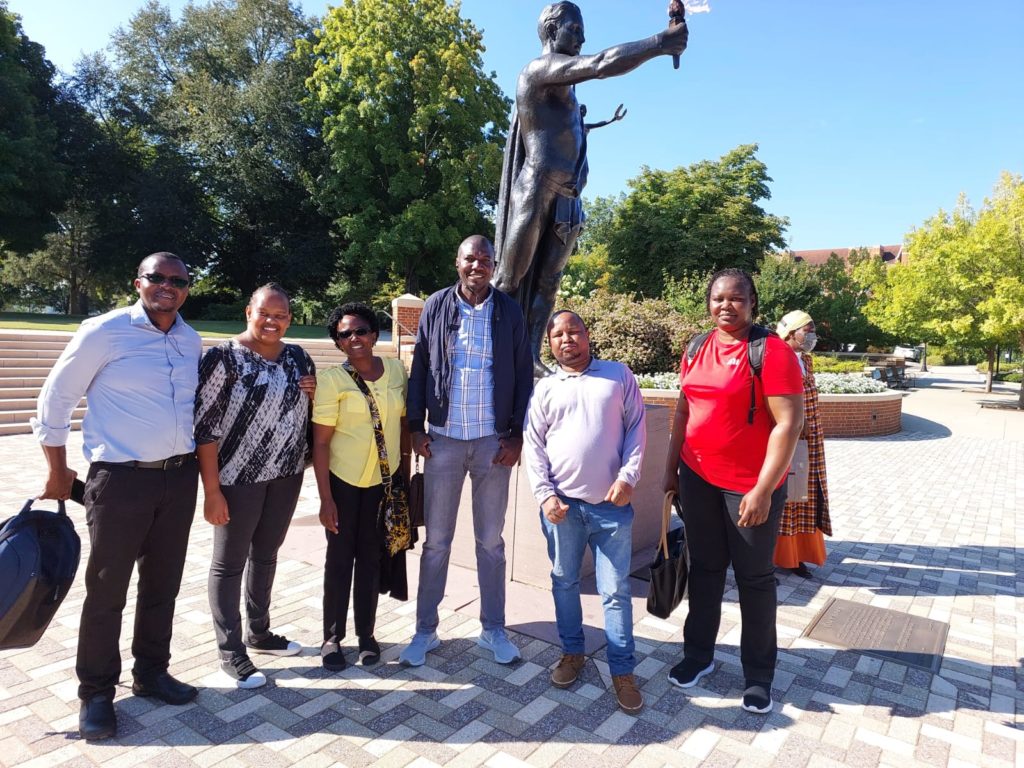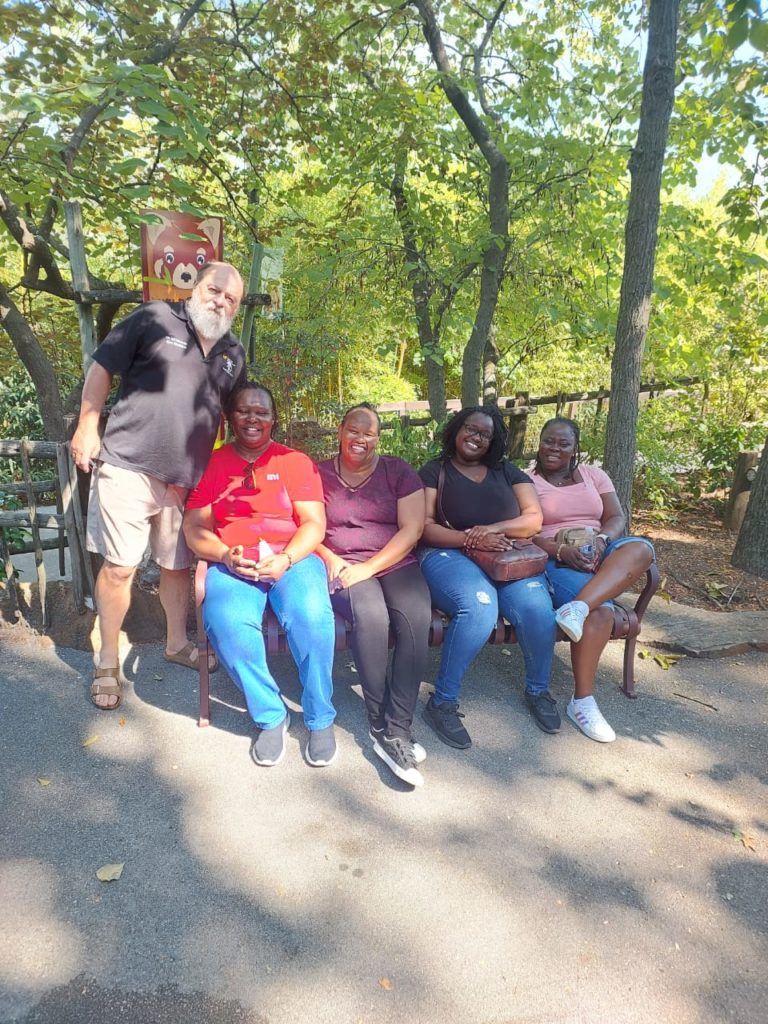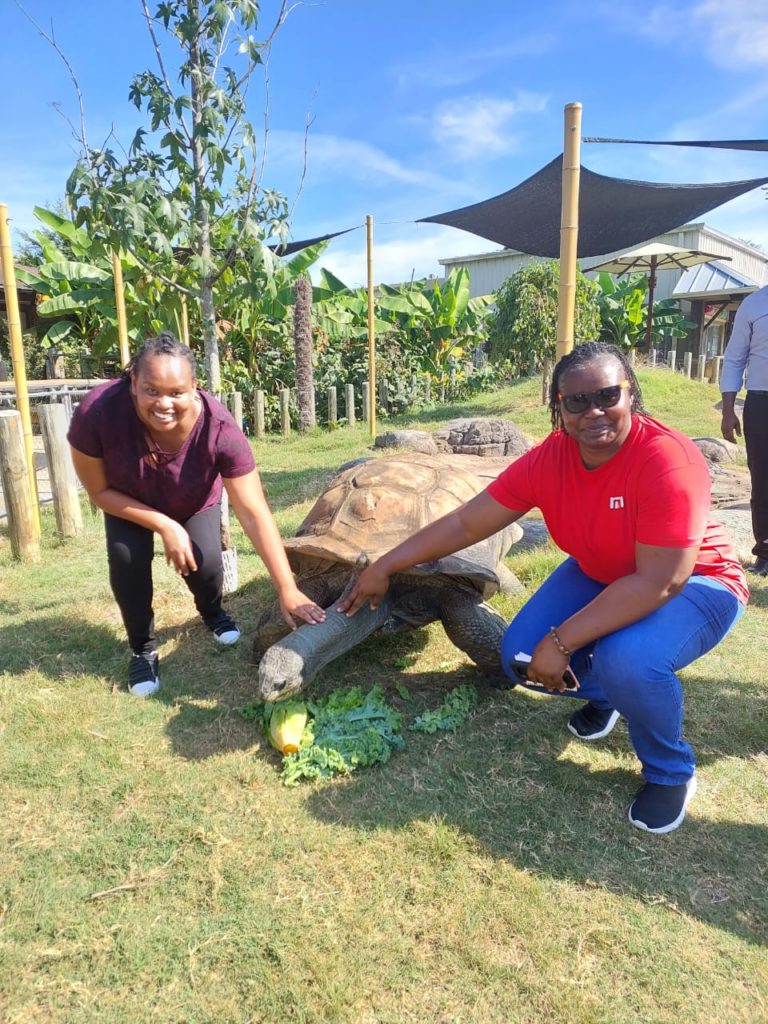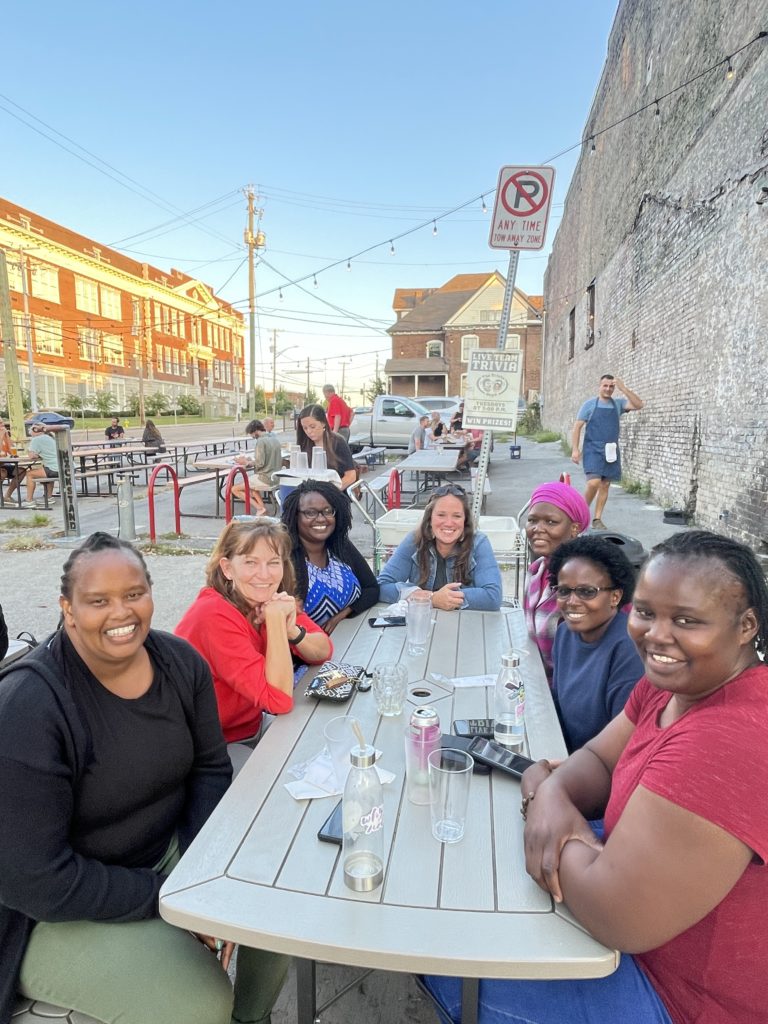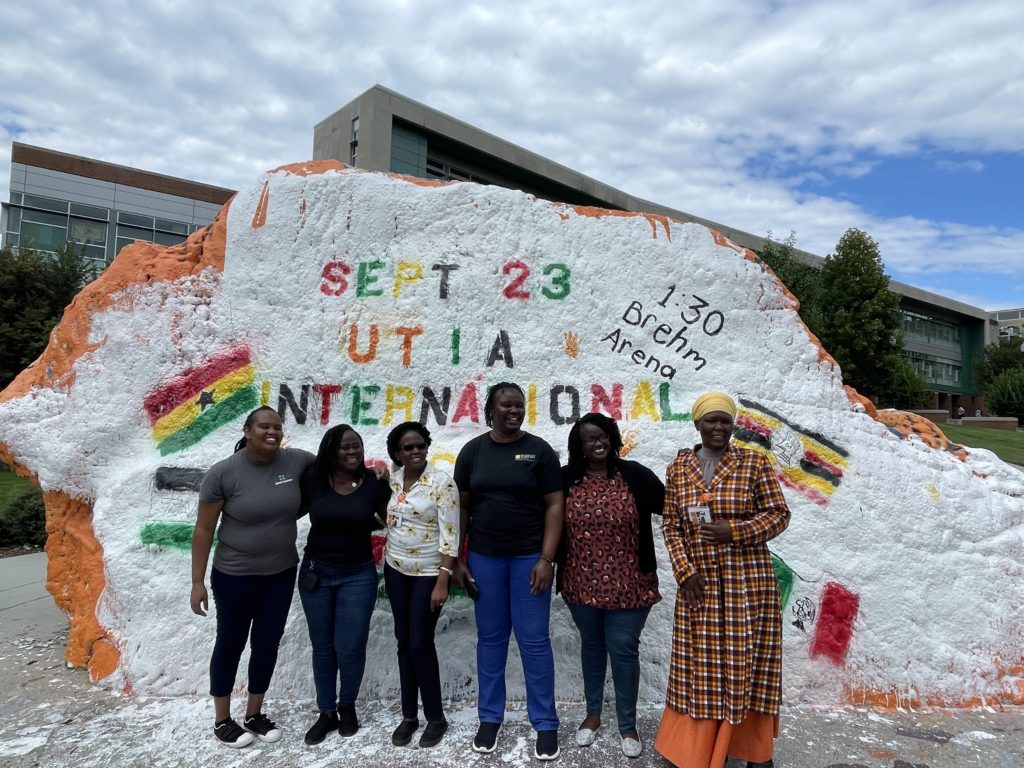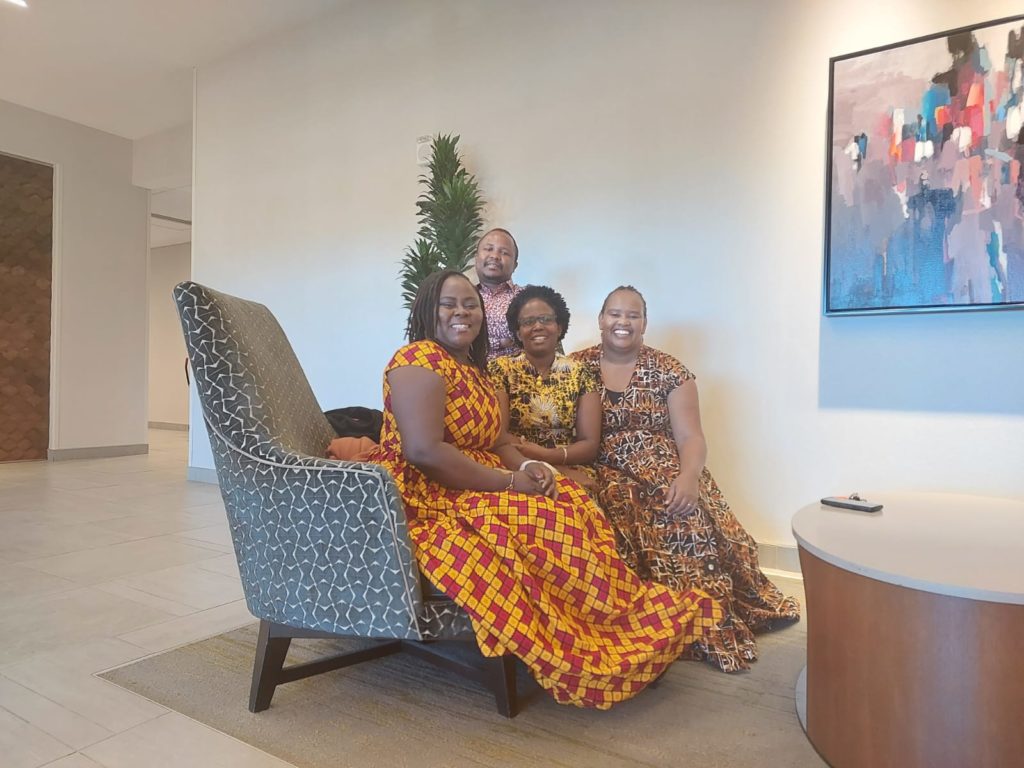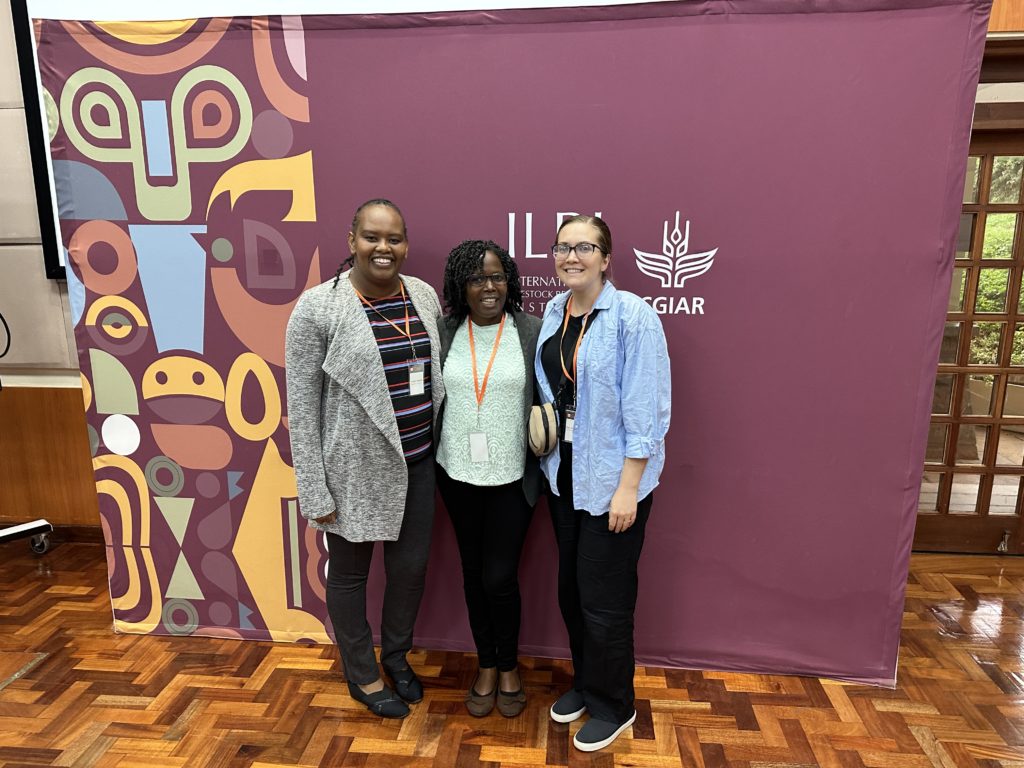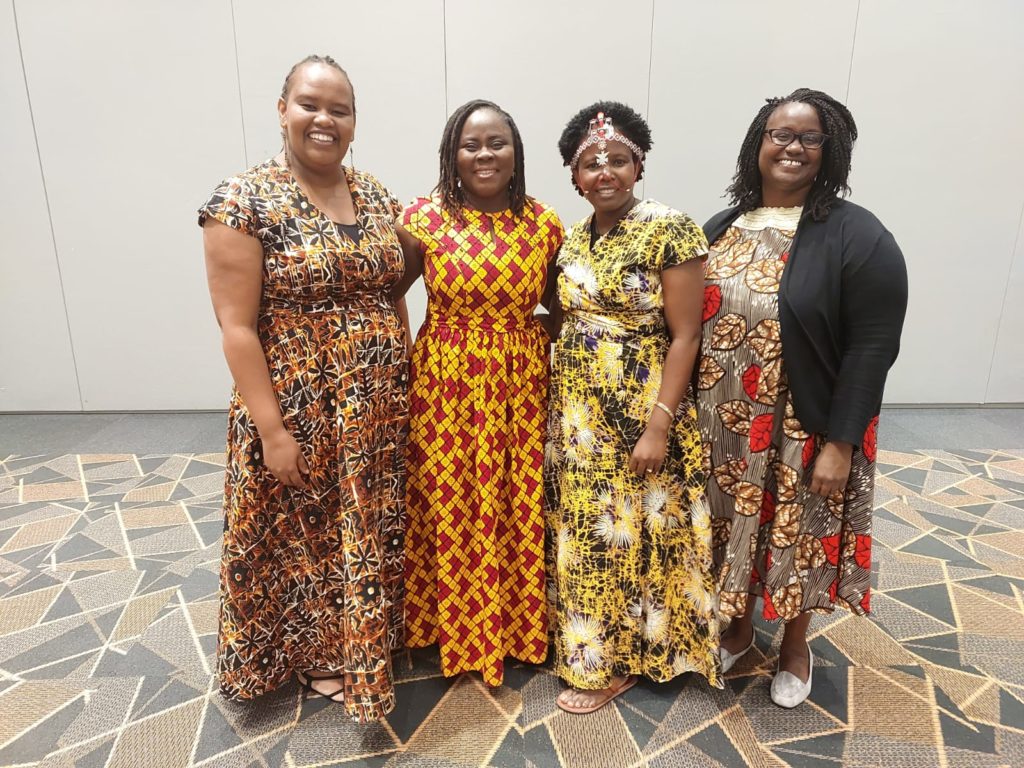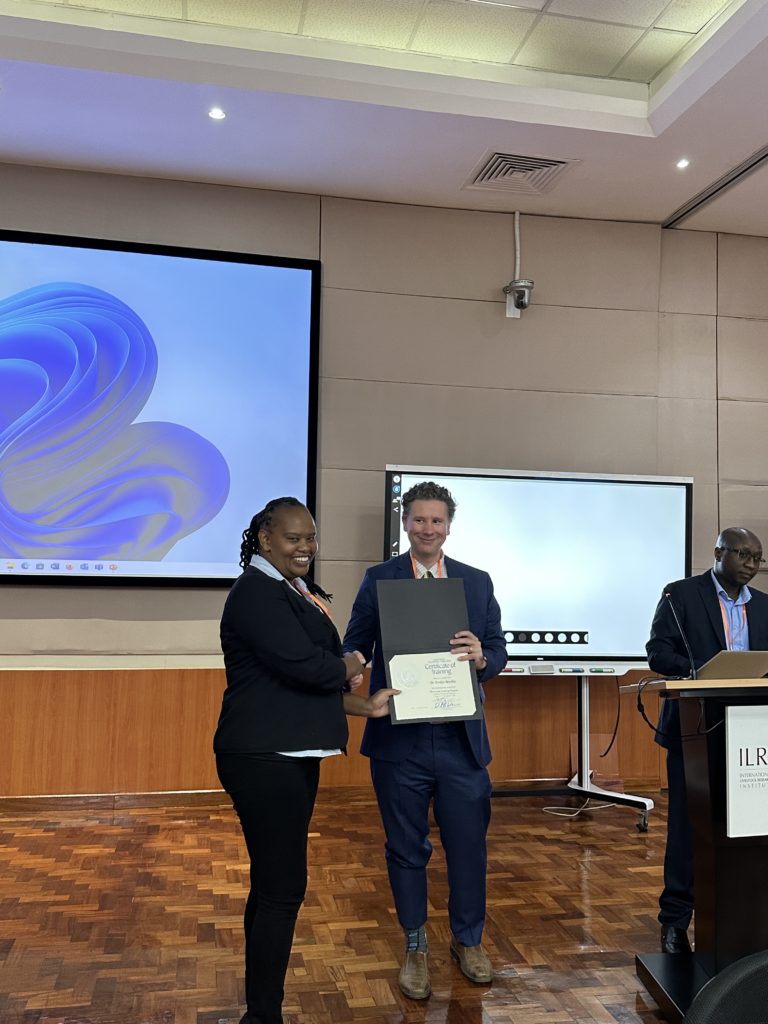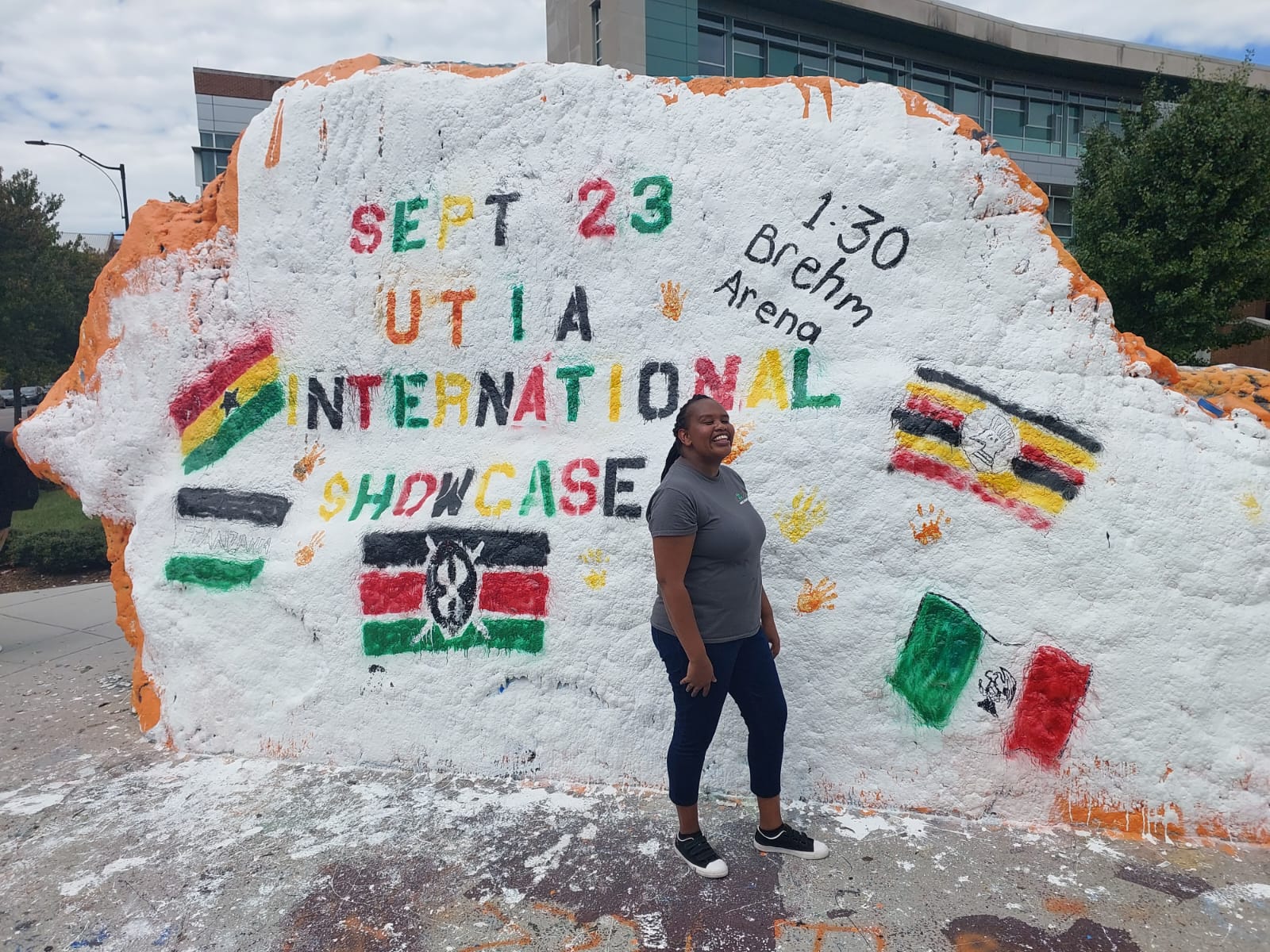
By Mary Shelley-Snell
From August to December 2022, the University of Tennessee Institute of Agriculture hosted nine Faculty Exchange Program (FEP) and five Scientific Exchange Program (SEP) fellows from four African countries. These programs are funded through the Foreign Agriculture Service (FAS) at the United States Department of Agriculture (USDA), and they focus on veterinary teacher pedagogy and animal health governance. Marcy Souza, professor and associate dean for outreach and global engagement at UTIA CVM, served as the project lead for both programs. The visiting SEP fellows were all from Kenya, and the FEP fellows were from Ghana, Kenya, Tanzania, and Uganda. They were matched with faculty members from three different UT colleges for mentorship for the duration of their programs. Learn more about each fellow and their mentor throughout this #FacultyExchangeFriday blog series.
Evalyn Wanjiru Mwihia is an assistant lecturer at the Faculty of Veterinary Medicine and Surgery, Department of Pathology, Microbiology and Parasitology at Egerton University in Kenya. Her research focuses on the design and application of diagnostic techniques to analyze both infectious and non-infectious diseases in terrestrial and aquatic animals thereby contributing towards improved animal welfare and food safety. Read more about her experience as a FEP Fellow below!
Q: What interested you about this program?
I heard about this program from Marcy at a workshop in Uganda. That workshop was a preview of what this program was going to be. I was really excited about the opportunity to expand on what I learned there!
Q: What were some highlights of the program for you?
I really liked the way the veterinary medicine program is organized here. It’s so different from home because our students come to us straight from high school. The teaching methods have to be a bit different, but I learned so much here that’s going to be helpful. I’m looking forward to implementing technology at a new level so that I can better engage the students. I plan to have clearly defined objectives in my syllabi and course outlines moving forward so the students know what to expect.
I also really enjoyed getting the chance to visit Lincoln Memorial University. We learned about their teaching models, which I think I can implement in my courses on pathology. It was all about tools that are locally available to you or that you can produce yourself.
I’ve been in the process of completing my PhD so getting the change to practice my defense with Marcy and my mentor has made me feel so much more prepared. All the mentors here have been wonderful. Learning from Dr. Dennis was impactful, but it’s even better because each mentor was willing to also connect with other fellows besides their mentees, and point you towards other connections that might be in your area of interest.
Q: What are you next steps following your completion of this fellowship?
I plan to start by sharing what I’ve learned with my colleagues. I also hope to use what I’ve learned to improve the students’ experience in my courses. I’m going to improve my syllabi and course outlines, and then start using case studies and multiple choice exams to better teach and then measure students’ learning.
Another benefit from how this program was structured is that we got to meet and network with all the SEP fellows. I’ve made some connections in that group and now we are planning to work together on a few projects. We want to find a way to come up with an accreditation program for veterinarians so that vets in our countries can be certified at a more consistent standard. Then we also discussed what an online platform for our colleagues might look like so that they can engage with some of what we learned here, too.
I’m also hoping to build on my connection with my mentor and one day conduct research together. It’s nice to know that door is open for so many collaborations in the future.
Q: Why do you view exchange programs like this one as being important?
I think the FEP program helps professors implement teaching methods that are really effective in the classroom. I wish that new faculty could go through a program like this to prepare them for the future, and that older faculty could do it as a refresher. It’s also nice getting to show what might be similar and also different from teaching at home to teaching here.
Q: What was your favorite part about being at UT and in Knoxville, TN?
American football! It’s so exciting. I also feel that people at UT and in Knoxville are so kind and helpful. Marcy worked to solve any issues we had and also. made sure we had such a variety of excursions and activities. Knoxville is also the perfect mix of city and town. Still able to access what we need, but it’s peaceful here. I’ve loved this entire experience, and I’ll especially miss the connections and friendships I’ve made here.
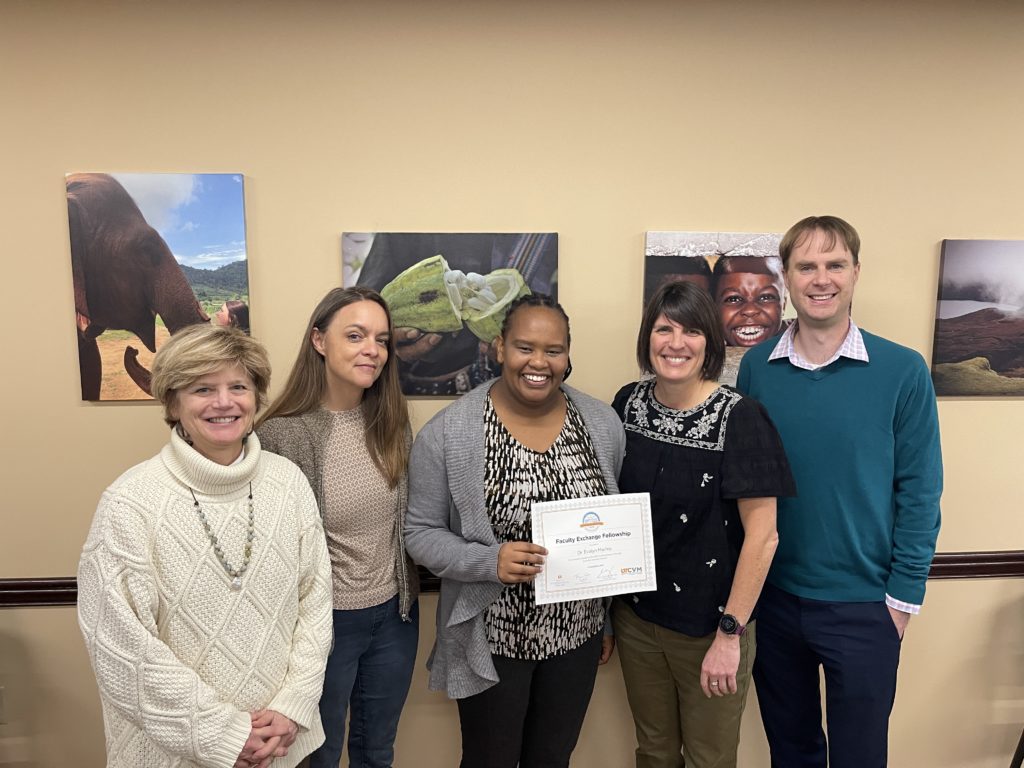
Evalyn was mentored by Michelle Dennis, associate professor of anatomic pathology with the College of Veterinary Medicine. Dennis’s research focuses on comparative pathology and the investigation of natural disease, particularly involving wildlife and aquatic animals, including marine mammals. She also teaches courses that focus on clinical necropsy rotation, endocrine system pathology, urinary system pathology and microscopic anatomy (endocrine and urinary systems). Learn more below about her experience as a UTIA faculty mentor in the FEP Program.
Q: What interested you in participating in this program?
I was hoping to broaden my network in East Africa and build a track record of collaborating with international faculty. I mentor a few grad students from Puerto Rico and really enjoy that work so this seemed like a great opportunity to expand that further. I was also interested in what kind of opportunities might grow from establishing a connection in regions I haven’t previously worked in.
Q: What were some highlights of the program for you?
I really enjoyed getting to see Evalyn plug in and soak up all the teaching resources. Watching her take all that knowledge and then really grow from it was very rewarding.
Q: What did you learn from interacting with your mentee?
I found that it’s difficult for veterinary medicine to be practiced at the same standard across the world because of a lack of resources and infrastructure. I think that ends up affecting everything, even down to the way veterinarians are being taught. But even within that, we still face similar struggles that I didn’t expect beforehand.
Q: What kind of impacts do you think these exchange programs have?
My hope is that these exchange programs can provide training, opportunities and enrichment that otherwise wouldn’t happen. Then we can address these global issues as a global network, and build out the skills needed to solve some of these global problems as a group.
Interested in learning more about how the Smith Center is participating in projects like these to #GrowGlobal at UTIA and beyond? Don’t miss the 2023 UTIA International Showcase on Friday, September 22nd at the Brehm Animal Science lawn and arena from 11:30 am – 2:30 pm.
